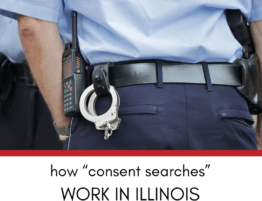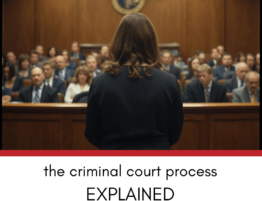

When an Illinois college student is accused of a crime, the stakes are often double. A single incident can trigger both a criminal court case and a campus disciplinary process. While the two systems operate independently, what happens in one can affect the other. Students may find themselves navigating not only the criminal justice system but also school hearings that determine their academic future. Understanding how these processes overlap—and how to defend yourself in both—is critical to protecting your rights, reputation, and education.
How Campus Discipline Differs From Criminal Court
Colleges and universities in Illinois are not courts of law. They run disciplinary systems under their own codes of conduct. The goals are not punishment in the same sense as jail time or probation but protecting campus safety and community standards. Key differences include:
-
Lower burden of proof: Schools often use a “preponderance of the evidence” standard, meaning more likely than not, whereas courts require proof beyond a reasonable doubt.
-
Limited procedural protections: Students may not have the same rights to confront witnesses or access evidence as in court.
-
Wide range of sanctions: Schools can impose warnings, suspension, expulsion, housing bans, or loss of scholarships, even without a criminal conviction.
-
Faster timelines: Disciplinary hearings often happen before criminal cases conclude, putting students in a difficult position.
Common Situations Where Overlap Occurs
Alcohol and Drug Cases
Underage drinking, possession of marijuana, or distribution of controlled substances often lead to both criminal charges and university hearings. Even if charges are reduced or dismissed in court, a school can still discipline the student for violating campus rules.
Assault and Harassment Allegations
Physical altercations, fights, and harassment can trigger dual processes. Universities often take swift action under Title IX or their student conduct codes while prosecutors pursue separate charges.
Property Crimes
Vandalism, theft from dorms, or destruction of school property can be charged as misdemeanors or felonies in Illinois courts, while campus hearings focus on restitution and community safety.
Sexual Misconduct Cases
These are particularly complex. Schools must comply with Title IX regulations, investigating complaints independently of police. A student may face expulsion even if prosecutors decline to file charges.
Risks of Parallel Proceedings
Because campus hearings and court cases often run on different tracks, students face risks on both sides. Statements made in school hearings can be used against you in court. Waiving your right to remain silent at a disciplinary board can undermine your criminal defense. Conversely, if you remain silent at school, the board may draw negative inferences. This creates a dilemma where students need careful legal strategy to manage both processes.
Defense Strategies for Illinois College Students
Retain Legal Counsel Immediately
A criminal defense lawyer experienced with student cases can guide you through both the court process and the disciplinary system. Having one advocate ensures consistency and avoids contradictions.
Manage Statements Carefully
Do not make written or oral statements to university investigators without consulting your lawyer. What you say to administrators can be shared with police.
Seek Parallel Resolutions
In some cases, negotiating with both prosecutors and the school can align outcomes. For example, diversion programs in court may coincide with counseling or educational sanctions on campus.
Protect Your Academic Future
Even if criminal charges are dismissed, expulsion can derail career plans. Lawyers can work to reduce sanctions, preserve transcripts, and keep opportunities like graduate school or professional licensing open.
Use Evidence Across Forums
Video footage, witness statements, or forensic evidence that helps in court may also sway a disciplinary panel. Coordinating evidence presentation is key.
Collateral Consequences for Students
A criminal conviction affects more than the immediate case. Illinois college students may face:
-
Loss of financial aid or scholarships.
-
Difficulty applying to graduate schools or professional programs.
-
Restrictions on campus housing or student organizations.
-
Immigration consequences for international students.
-
Long-term damage to reputation and employment opportunities.
Campus discipline may also appear on transcripts or internal records, following students long after the criminal case ends.
Do You Need to Talk to an Attorney?
If you’ve been accused of a crime, we may be able to help you – and don’t worry: It’s completely confidential. Call us at 847-920-4540 or fill out the form below to schedule your free, private consultation with an experienced and skilled Chicago criminal defense attorney now.
Contact Us
"*" indicates required fields









